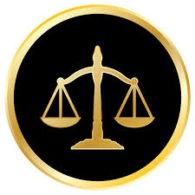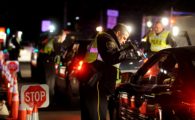David Pflaum is one of the most experienced lawyers for DMV hearings for DUI with 30 years of expertise.
Attorney Pflaum understands how important a drivers license is and effectively represents his clients to get the best possible results.
For DMV hearings unrelated to driving under the influence, click here: DMV lawyer.
THE DMV HEARINGS FOR DUI
Whenever an adult is arrested for allegedly driving under the influence of alcohol (“DUI”), the arresting officer will typically take away the person’s driver’s license and issue him or her a temporary permit to drive.
The same applies for an under-21 person who was detained by an officer and submitted to a Preliminary Alcohol Screening test that was positive for alcohol.
The temporary permit has strict time limits in which the driver must act in order to keep his or her driver’s license.
The defense of a driver’s license takes place in what is called an Admin Per Se hearing. Even though you can try to represent yourself in a DMV hearing, an experienced attorney helps you find the best defense for your particular case to keep your license.
The defense that works for your case will depend upon the facts, the arrest report, the blood or breath test analysis, and your driving record.
Mr. Pflaum does his best to determine which is the best strategy to use in each case to get the best possible results for his client.
You must be well prepared for the revocation hearing to dispute the issues that DMV makes against you, and to present evidence in your favor, or risk losing your license.
ADMIN PER SE IMMEDIATE DRIVER LICENSE SUSPENSION OR REVOCATION
The administrative license suspension program, known as “Admin Per Se” (APS) was implemented in 1990 as a stronger deterrent to drunk driving. The following information is a general guide for drivers 21 years of age and older who become subject to an APS driver license (DL) suspension or revocation.
All APS cases are unique, and if this guide does not provide the specific information you are seeking, additional information is available on the DMV website at www.dmv.ca.gov or by contacting attorney Pflaum.
WHO IS AFFECTED
The DMV is required to suspend or revoke the driving privilege of any person arrested for driving under the influence (DUI) of alcohol or a combination of alcohol and drugs, who:
- Takes a chemical (blood or breath) test which shows a blood alcohol concentration (BAC) level of 0.01% while on DUI probation, 0.04% while driving a commercial vehicle, and/or a BAC of 0.08% or more while driving a noncommercial vehicle, or
- Refuses to take or fails to complete a chemical test (blood or breath)* to determine his/ her BAC level
*NOTE: A urine test is not available unless one of the following applies:
- The officer suspects you were driving under the influence of drugs or a combination of drugs and alcohol.
- Both the blood and breath tests are unavailable.
- You are a hemophiliac.
- You are taking anticoagulant medication.
WHAT HAPPENS TO YOUR DRIVERS LICENSE
The officer will give the driver an Order of Suspension/Revocation. If the driver had a valid California driver license, the officer will take away the drivers license and send it to the DMV to be destroyed.
The Order of Suspension/Revocation includes a temporary driver license valid for 30 days from the issue date, usually the date of an arrest. At the end of the 30 days, the Suspension/Revocation action goes into effect, unless you or your attorney scheduled a hearing within 10 days of the arrest.
If the officer does not serve the driver with an Order of Suspension/Revocation, the DMV may mail one to the driver.
WHAT DOES DMV DO
The DMV automatically conducts an administrative review which may include an examination of the officer’s sworn report and any accompanying documents, such as an arrest or traffic collision report.
If the review shows there is no basis for the APS suspension/revocation, it will be set aside and the license remains valid. The DMV will notify you in writing if the suspension/revocation is set aside.
WHAT CAN I DO ABOUT THE SUSPENSION/REVOCATION
You have 10 days from the receipt of the Order of Suspension/Revocation to request a hearing to show that the APS suspension/revocation is not justified. The DMV will conduct a telephone hearing unless you request an in-person hearing. The APS suspension/revocation will not be stayed or delayed unless:
- You request a hearing within 10 days from the issue date of the order and the DMV cannot provide a hearing before the effective date of the suspension/ revocation.
Before the hearing, and upon request, you may see and/or obtain copies of the DMV’s evidence. If you want copies released to someone else, such as an attorney, you must give the person signed permission. You have the right to have a sign or language interpreter present at your hearing. Immediately notify the DMV if you require an interpreter.
You may represent yourself or at your own expense, an attorney or another person may represent you at the hearing. You may present oral testimony and other evidence. Your testimony will be taken under oath or affirmation and the hearing will be recorded.
The DMV ordinarily does not arrange to have the peace officer testify. However, the DMV reserves the right to call the officer if his/her testimony is needed. You may subpoena the officer or any other witness(es) you feel may help your case and have relevant testimony or evidence to present. You are responsible for paying the required fees and for making sure your witness(es) receives the subpoena.
After the hearing decision, you may submit a written request for a department review within 15 days of the effective date of the notice. The fee for a department review is $120 (California Vehicle Code (CVC) §§14105.5, 14907).
To reinstate your driving privilege after an APS suspension/revocation, you must:
- Pay a $125 reissue fee to the DMV (CVC §14905).
- File proof of financial responsibility (i.e., a California Insurance Proof Certificate [SR 22], $35,000 cash deposit, surety bond, or self insurer certificate under CVC §16430).
- Maintain proof of financial responsibility for three years.
DUI DMV HEARING ISSUES
Your need for a driver license is not an issue at the APS hearing. Only the following issues will be discussed:
A. If you took a chemical test
- Did the peace officer have reasonable cause to believe you were driving a motor vehicle in violation of CVC §§23152, 23153, or 23154?
- Were you lawfully detained while on DUI probation or lawfully arrested?
- Were you driving a motor vehicle when you had 0.01% BAC or more by weight of alcohol while on DUI probation; 0.04% BAC or more by weight of alcohol while driving a commercial vehicle; or 0.08% BAC or more by weight of alcohol while driving a noncommercial vehicle?
B. If you refused or failed to complete a chemical test
- Did the peace officer have reasonable cause to believe you were driving a motor vehicle in violation of CVC §§23152, 23153, or 23154?
- Were you lawfully detained while on DUI probation or lawfully arrested?
- Were you told that your driving privilege would be suspended or revoked for one, two, or three years if you refused to submit to or failed to complete a chemical test?
- Did you refuse to submit to, or fail to complete a chemical test or preliminary alcohol screening (PAS) test (while on DUI probation) after being requested to do so by a peace officer?
HOW LONG WILL A LICENSE BE SUSPENDED OR REVOKED
A. If you took a chemical test, and the results showed a BAC of 0.04% while operating a commercial motor vehicle, or a BAC level of 0.08% or more while operating a noncommercial vehicle, your driving privilege will be suspended for:
- Four months—first offense.
- One year—one or more separate offenses in ten years.
A court-ordered DUI probation prohibits a person previously convicted of a DUI from operating a motor vehicle with any measurable amount of alcohol in the driver’s blood (0.01% BAC).
If you took a PAS or chemical test, and the results showed a BAC level of 0.01% or more, and you were on court-ordered probation for a prior DUI conviction of CVC §§23152 or 23153, in addition to the APS suspension, the DMV will impose a concurrent one-year suspension based on violation of your DUI probation. You are not eligible for a restricted license during the one-year period.
B. If you refused or failed to complete a PAS or other chemical test, and you were on a court-ordered probation for a DUI conviction of CVC §23152 or 23153, the following licensing sanctions will apply:
- First offense—a one-year suspension; a two-year revocation, if on DUI probation.
- Second offense—within 10 years of a separate violation of driving under the influence, will result in a 2-year revocation; a 3-year revocation while on DUI probation.
- Three or more offenses—within 10 years of any combination of the above violations, convictions, or separate administrative determinations will result in a 3-year revocation.
RESTRICTED LICENSE ELIGIBILITY
You may be eligible for a noncommercial restricted driver license if all of the following apply:
- This is your first offense**
- You completed a chemical test
- The results showed a BAC level of 0.04% while operating a commercial vehicle, or 0.08% or more while operating a noncommercial vehicle
- You were 21 years of age or older (VC §13353.7).
- Your driving privilege is not suspended or revoked for some other reason
**FIRST OFFENSE. You must not have had another offense within 10 years of a separate DUI violation. This includes a charge reduced to reckless driving, vehicular manslaughter, or violation of CVC §23140, which resulted in a conviction or separate administrative determination that you were driving with a BAC of 0.01% or more while on DUI Probation, driving a noncommercial vehicle with a BAC of 0.08% or more, driving a commercial vehicle at any age with a BAC of 0.04% or more OR you refused a chemical test.
NOTE: Holders of a commercial driver license must down-grade to a Class C non-commercial driver license. You may then request the applicable restriction noted below which shall remain in effect for five months.
If you were cited in a:
- Noncommercial vehicle, you may be eligible for a restriction to drive to/from a DUI treatment program, and to/from/during course of employment only.
- Commercial vehicle, you may be eligible for a restriction to drive to/from a DUI treatment program only.
NONCOMMERCIAL RESTRICTED LICENSE
To be issued a noncommercial restricted driver license, you must:
- Enroll in a licensed DUI First Offender program. (You must notify the program provider that you intend to apply for a restricted driver license.)
- Ask the program provider to file a Proof of Enrollment Certificate (DL 107) in a licensed DUI First Offender program with DMV (CVC §23538(b)).
- File proof of financial responsibility (i.e., a California Insurance Proof Certificate [SR 22], $35,000 cash deposit, surety bond, or self insurer certificate under CVC §16430).
- Pay a $125 reissue fee.
- Wait until the end of the mandatory 30-day suspension period before applying for a restricted DL.
Request a to/from/during course of employment and DUI program restriction. Your driving privilege will be restricted to allow you to drive to, from, and during the course of your employment and to and from the DUI program. This restriction is valid for five months.

Mr. Pflaum understands the stress and the needs of a client facing a DMV hearing for dui and possible loss of a drivers license.
He has decades of experience making a positive difference for clients in the outcome of their cases.
Contact The Attorney For DMV Hearings For DUI To Defend You
(760) 806-4333
Vista – Escondido – Carlsbad – Fallbrook – Oceanside – Encinitas – Solana Beach – San Ysidro – Chula Vista – San Diego – Carmel Valley – Pacific Beach – Del Mar – San Marcos – El Cajon – La Costa – Leucadia – La Jolla – Mission Beach – Imperial Beach – North Park – Hillcrest– Rancho Santa Fe – Poway – North County – South Bay – Coronado – Miramar – Scripps Ranch – Rancho Bernardo – Valley Center – Bonsall

This page is also available in: Spanish




